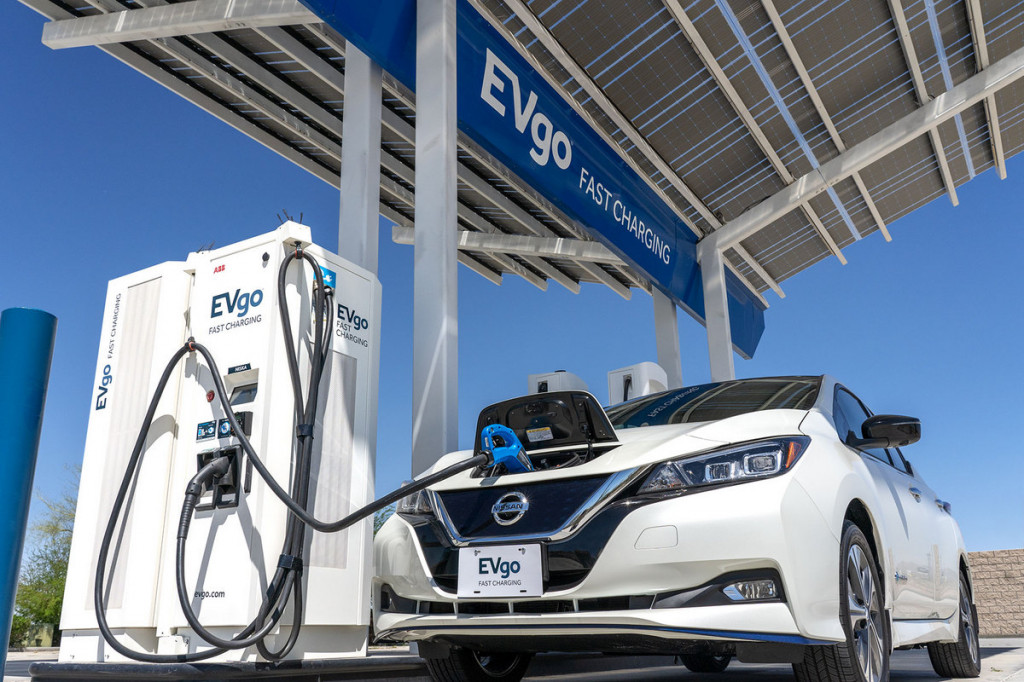The U.S. Supreme Court on Friday declined to hear a challenge to California’s emissions authority, allowing the state to, for the time being, continue with plans to gradually phase out sales of new internal-combustion vehicles.
The Court denied a petition by Ohio and other states to consider the merits of challenges by oil and gas companies to California’s Clean Air Act waiver, which allows the state to set its own, stricter emissions standards. The Court said it would only consider whether those companies had standing to bring their claims.
This removes one potential threat to California’s regulatory authority, but there’s likely more where that came from. As California prepares to ban the sale of non-plug-in gasoline vehicles by 2035, conservative interests are targeting its EV-friendly policies.
Rivian Adventure Network charging site in Joshua Tree, California
The Heritage Foundation’s Project 2025, which might serve as a blueprint for the incoming Trump Administration, doesn’t call for an outright revocation of the waiver, but does aim for it to be reduced to cover only pollution issues specific to that state, as well as ensuring that other states that adopt California environmental standards only do so for “traditional/criteria pollutants”—not greenhouse gas emissions.
This would effectively excise the EV portion of California’s emissions standards, making for a much more surgical strike against EV policy than in the previous Trump Administration, which acted to remove California’s emissions authority outright in 2019. That challenge went to the courts, for different reasons, and the emissions authority was eventually restored by the Biden Administration.

Nissan Leaf charging at EVgo fast charger in Baker, California
Last time around, a series of automakers made side deals with California, backing it because it simply made better sense on the global landscape. BMW, Ford, Honda, Volkswagen, and Volvo asked a federal court to uphold California’s emissions authority, while General Motors, Fiat Chrysler Automobiles (now Stellantis), and Toyota sided with Trump.
It’s unclear how aggressive the second Trump Administration will be in trying to dismantle Biden’s clean-energy and EV-focused policy, but things do not look good on that front. In this case, though, attacking policies will also mean attacking states’ rights—ostensibly one of the core values of the Republican Party.




